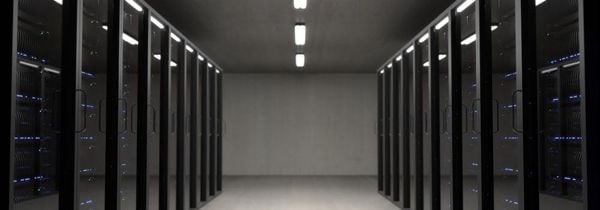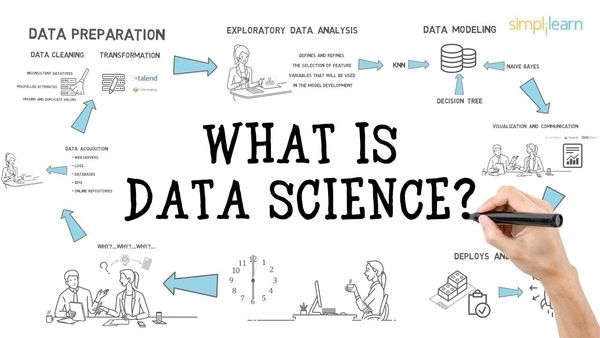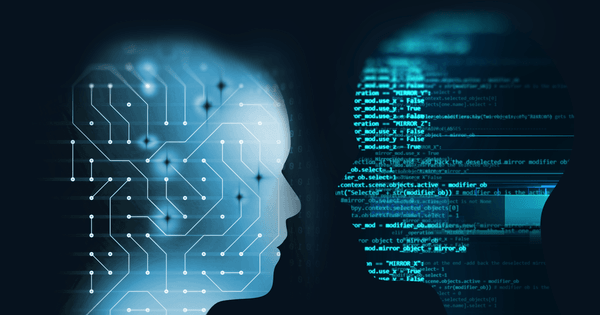
How Technology Can Help Us Fight the Coronavirus Epidemic
May 21, 2020
How Data Centers Are Becoming More Efficient and Compact in Our Generation
May 27, 2020Simply put, Data science is the study of data. Scientists use algorithms and complex scientific processes to gain valuable insights and information out of data which can then be applied in a multitude of settings. It’s clear to see, as the world’s relationship with data has evolved, so too has the need for how we process and establish meaningful working relationships with it.
Data science is a process that finds its uses in a wide variety of different areas, one of them being cybersecurity. Given that everyone would like to understand their landscape much better, data science offers some leverage, allowing companies to be able to understand how to anticipate and respond to cybersecurity issues, threats, and attacks.
Cybersecurity before Data Science

Before the inception of data science, things were done majorly based on assumptions, and these were central to many organizations’ information security strategies. As a result, right and wrong decisions were subjective as they were formed around doubt, fear, and uncertainty.
With data science, however, the dark and ambiguous world of these fears, uncertainty, and doubt- FUD-based assumptions have become significantly illuminated. As a consequence, cybersecurity’s decisions have been rid of the congeal nature, and instead, decisions have become factual.
This, however, does not simplify the job of cybersecurity anyway, such that analysts and professionals in the information security field can overlook some cogent details. But cybersecurity has offered an amount of data-driven methods and tools that will make them more efficient at their jobs.
To meet this requisite demand, many organizations have to hire consultants to contribute their wealth of knowledge and expertise to their respective businesses that have cybersecurity data science needs. This has resulted in a tremendous improvement in terms of insights for organizations because their visions have been made more realistic, especially concerning how they manage their cybersecurity strengths and the risks involved.
The Impact of Data Science in the Realm of Cybersecurity
Essentially, the application of data science to cybersecurity to help protect against attacks and improve techniques to better combat cyber threats has many benefits. Admittedly, data science has changed cybersecurity a lot and the effect has been profound and incredibly revolutionizing. Some of the ways in which cybersecurity has benefited from data science are:
Improved Detection of Intrusion and Enhanced Predicting Ability
Cybersecurity takes the form of a cat-and-mouse game. As in, attackers or hackers have various means of intruding. They can change their styles, tools, and methods at any time. This calls for earlier intrusion detection, in which the system typically helps bridge the gap of time between attack and response.
Nonetheless, the attackers still had their way somehow. Interestingly, the adoption and implementation of data science afford organizations to feed machine learning algorithms with historical and current information about these numerous and avoidable intrusions. The result of this is a more effective means of detecting intrusion and managing the system, which also has the advantage and ability to be able to predict future attacks before the incidents happen.
Machine learning algorithms, an impressive feature of data science, helps in detecting loopholes in an information security environment to contribute to the strengthening of its security in different organizations.
Behavioral Analytics

It is good to be able to detect and identify malware (attacks generally) but understanding the behavior of the attacker is another. With data science, organizations can now reliably analyze a vast amount of information, especially data.
The use of tools like Solarwinds Log and Event Manager (LEM) helps pull a large amount of data from different sources. To predict future behavior, some system and network logs are further included and correlated. That way, loads of information can be processed on time and the malicious actors are handled much easier.
Data Protection
Another benefit of data science to cybersecurity is data protection. The former or traditional security measures such as complex signatures and encryption have been quite helpful in bringing an end to probing information and the various methods used by attackers in attacking valuable information.
Data science takes it a step ahead by helping to reinforce these measures and afford organizations means of developing highly impenetrable protocols through machine learning algorithms.
Avoiding Laboratory Scenarios for Real-World Scenarios
Data science enables the ability to move away from the laboratory scenarios which are fundamentally based on science and hypothesis and instead rely on real-world examples.
These real-world scenarios are extracted from historical data which algorithms use to display the events that have taken place in the previous scenarios of attacks, and the way the organization responded and possibly recovered. With that, organizations can gain the true idea and know about their information security landscape much better, the benefits of which pays dividends in terms of better security.
To be specific, in order to identify malware and spam, organizations can take advantage of data science by collecting data from a variety of samples purposely for deep learning and training in order to detect the malware on time. Once these spam and malware are identified, false positives would be reduced.
This also stands true for the identification of intrusions and attacks. With data science, every anomaly and abnormality caused by an intruder can be easily and properly identified. Then, proper preventative measures can be taken to prevent the severity of the intrusion. The process is the same for preventing fraud. When you have a sample of data set, it would be easy to detect abnormalities in credit card purchases, and this helps you identify any kind of fraudulent activity on time.
The Future of Data Science in Cybersecurity

Data science helps analyze big data for the purpose of rooting out all kinds of vulnerabilities. Conversely, data security software such as VPN services helps protect the network from the source of the big data. This implies that data science and data security related to symbiotically. Even though there is a long way to go, data science is the in-thing in cybersecurity and by incorporating this into your programs.
As much value as data science has in the cybersecurity field already, there are yet vast amounts of opportunities and benefits in the future. With the application of data analytics and different machine learning tools, organizations can conduct a proper analysis of the information they collect.
Not only that, but professionals will also be able to examine data very closely and thoroughly to identify trends and patterns. Moreover, data science can make things that were previously impossible, possible. Such things include flagging new threats depending on how similar they are too known exploits and their patterns.
With the advancement of technology, cybercriminals will have to keep up with the pace but how exactly would data science change to meet the needs?
With the look of things, datasets will become larger and algorithms will become sharper, while detection systems have a high tendency to improve. In the future, the security operations center (SOC) and its elements may become incredibly automated. And not only that, triage and automatic mitigation.
Meanwhile, there are specific cautions against adopting the hype of technology as it were, and instead, always keep in mind that data science transcends a collection of algorithms. There are more things to it.
Data science is continually improving, and as the years roll by, the relevance in data security is becoming increasingly pronounced. In fact, according to research, artificial intelligence is forecast to reach about $35 billion by 2025.
The fact that data scientists play a massively versatile role or an analyst, interpreter, technical expert, and the likes, makes problem-solving the easiest for them. With the knowledge of data science, programmers can enhance their techniques and hone their skills better to create more effective programs that can help protect against cyber threats.
Main Photo Credit: Search Engine Journal
